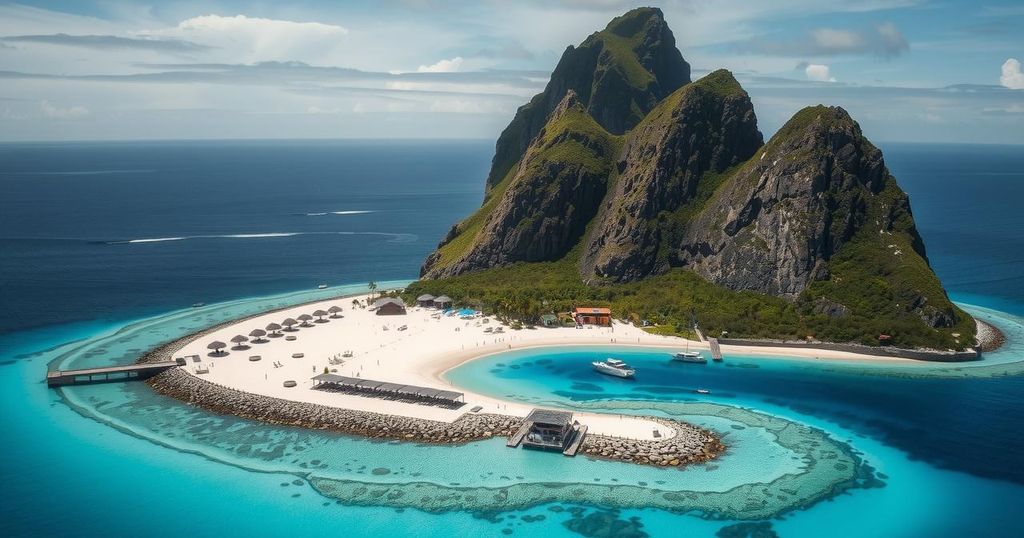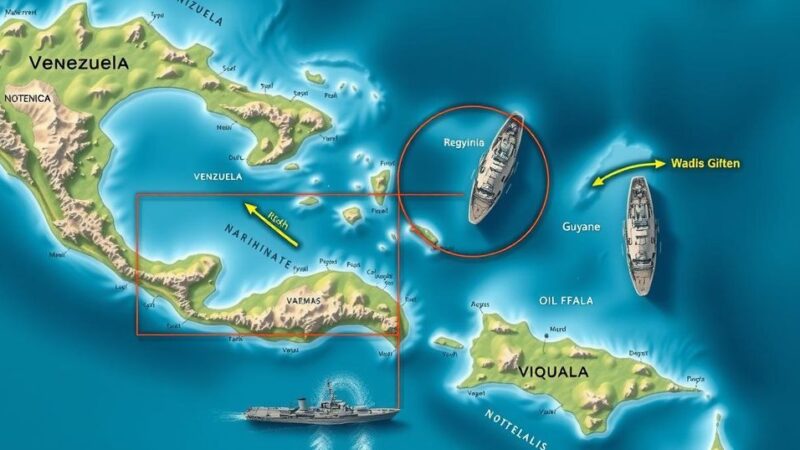Mauritius is in discussions with the UK to revise a deal concerning the Chagos Islands that would transfer sovereignty to Mauritius but allow the UK to retain a long-term lease on Diego Garcia. New Prime Minister Navin Ramgoolam has expressed reservations about the original agreement’s terms, prompting a review and counter-proposals aimed at aligning the deal with national interests. UK officials are actively engaged in ongoing negotiations to finalize the agreement.
Mauritius is currently engaged in renewed negotiations with the United Kingdom regarding the future of the Chagos Islands, having submitted amendments to a prospective agreement established earlier in October. The original terms suggested that the UK would cede sovereignty of the archipelago to Mauritius while retaining a 99-year lease on Diego Garcia, which houses a significant UK-US military installation.
The agreement was planned shortly before the electoral defeat of former Prime Minister Pravind Jugnauth. His successor, Navin Ramgoolam, has expressed hesitations about the deal, which has garnered criticism from the opposition Conservative Party in the UK and officials from the Trump administration. When initially announced, Prime Minister Sir Keir Starmer and Jugnauth hailed it as a pivotal moment in UK-Mauritius relations, emphasizing a commitment to peaceful dispute resolution and the rule of law.
Since then, Mr. Ramgoolam has sought legal advice to reassess the agreement’s provisions, stating in parliament that Mauritius wants to ensure the deal aligns with national interests. He revealed that counter-proposals have been made but did not specify their content. Currently, the UK’s response to these proposals is under consideration. A UK delegation visited Mauritius last week, seeking to advance negotiations, with Sir Keir’s spokesperson reiterating the aim of finalizing a mutually beneficial agreement without a defined timeline.
Concerns about the lease terms have been voiced, particularly by Arvin Boolell, the Minister of Agro-Industry and Fisheries, who criticized the extended lease period granted to the UK over Diego Garcia. Historical context reveals ongoing tensions regarding the islands’ sovereignty, which Mauritius contends were wrongfully ceded during its quest for independence in 1968. Despite the UK’s previous stance, which dismissed Mauritius’s claims, international pressure has mounted for the UK to resolve its claims to what is often referred to as its last African colony.
The discussions surrounding the Chagos Islands are deeply rooted in historical context, dating back to 1968, when Mauritius gained independence from British colonial rule. During this period, the UK facilitated the establishment of a military base in Diego Garcia, part of the Chagos archipelago, after displacing the island’s native inhabitants. Mauritius maintains that it was coerced into relinquishing sovereignty over the islands, which has fueled ongoing disputes internationally and at the United Nations, where calls for the UK to return the islands to Mauritius have intensified in recent years. Diplomatic ties have been challenged as the UK attempts to balance its military interests with increasing global pressure to resolve the issue.
In conclusion, the negotiations between Mauritius and the UK over the Chagos Islands reflect a complex interplay of historical grievances and contemporary geopolitical considerations. As Mauritius seeks to amend the terms of the agreement, emphasizing the need for it to serve national interests, the UK aims to maintain its military foothold in the region. The outcome of these negotiations will significantly impact both nations’ diplomatic relations and the future of the Chagos Islands, amid growing international scrutiny.
Original Source: www.bbc.com






